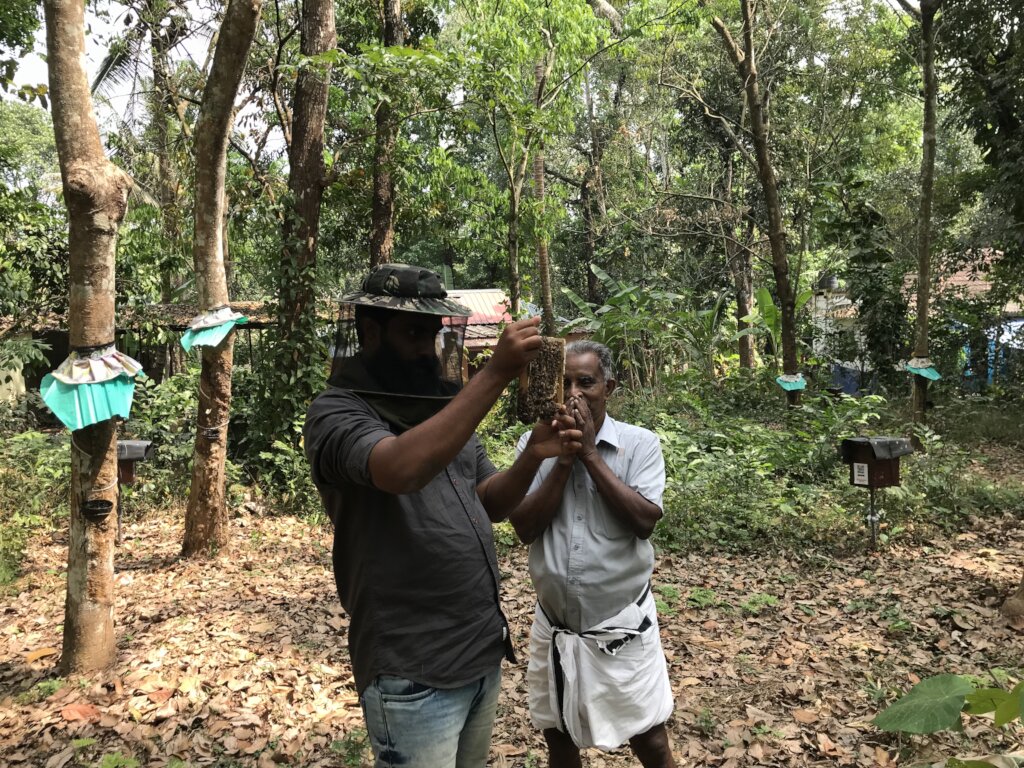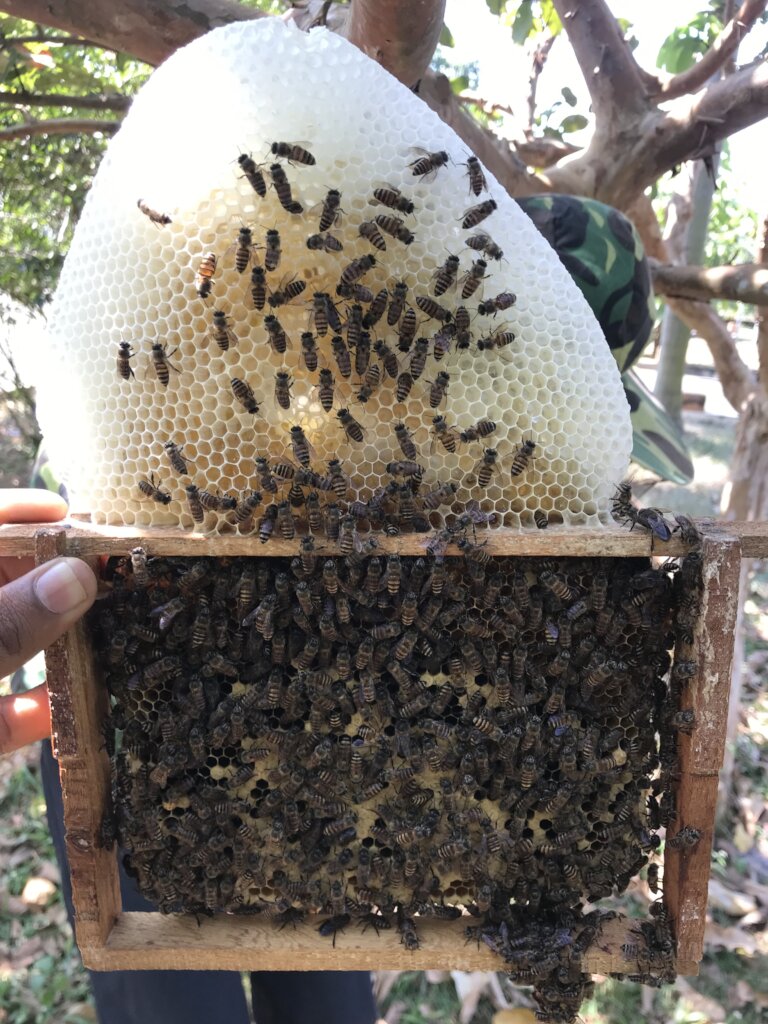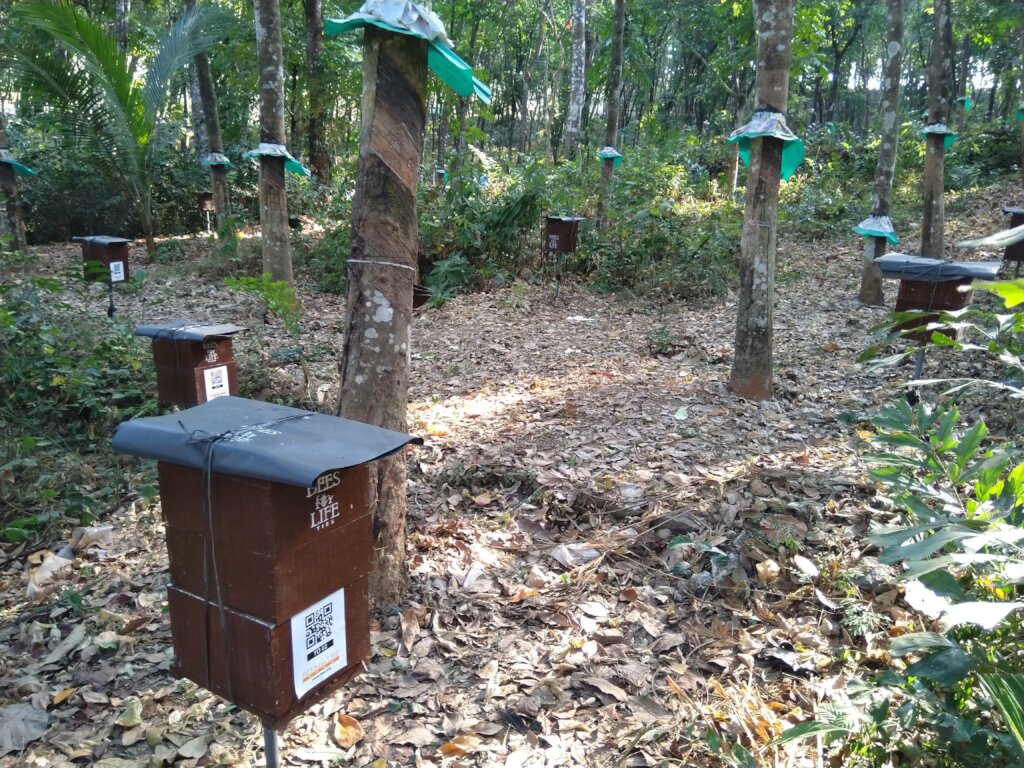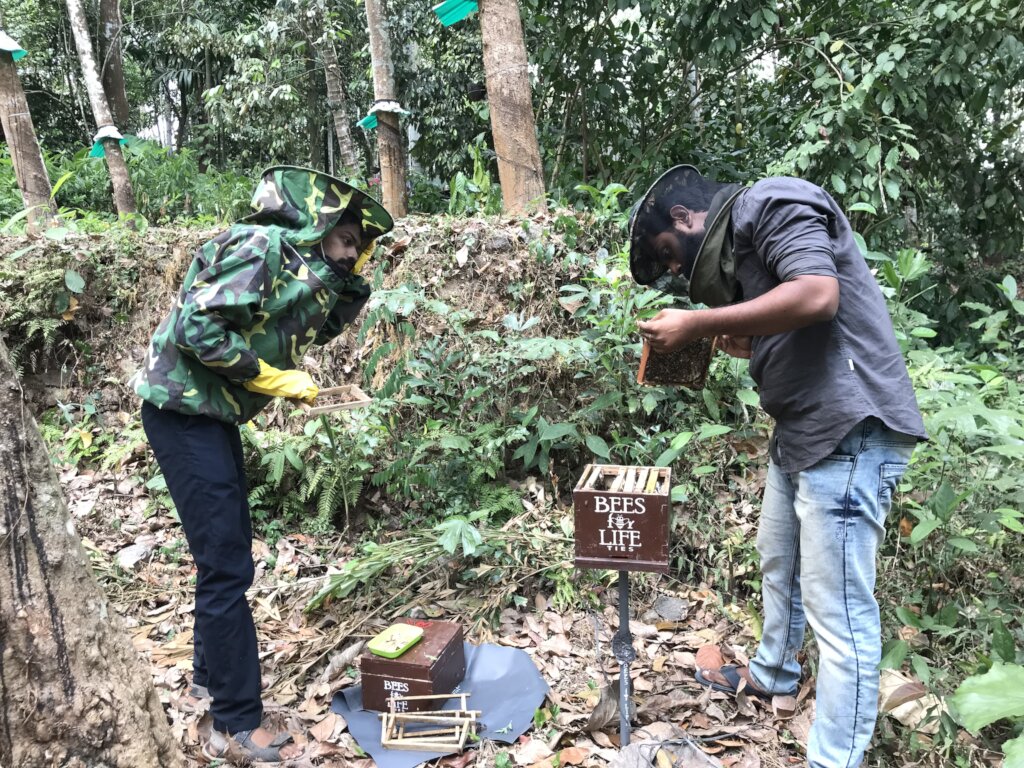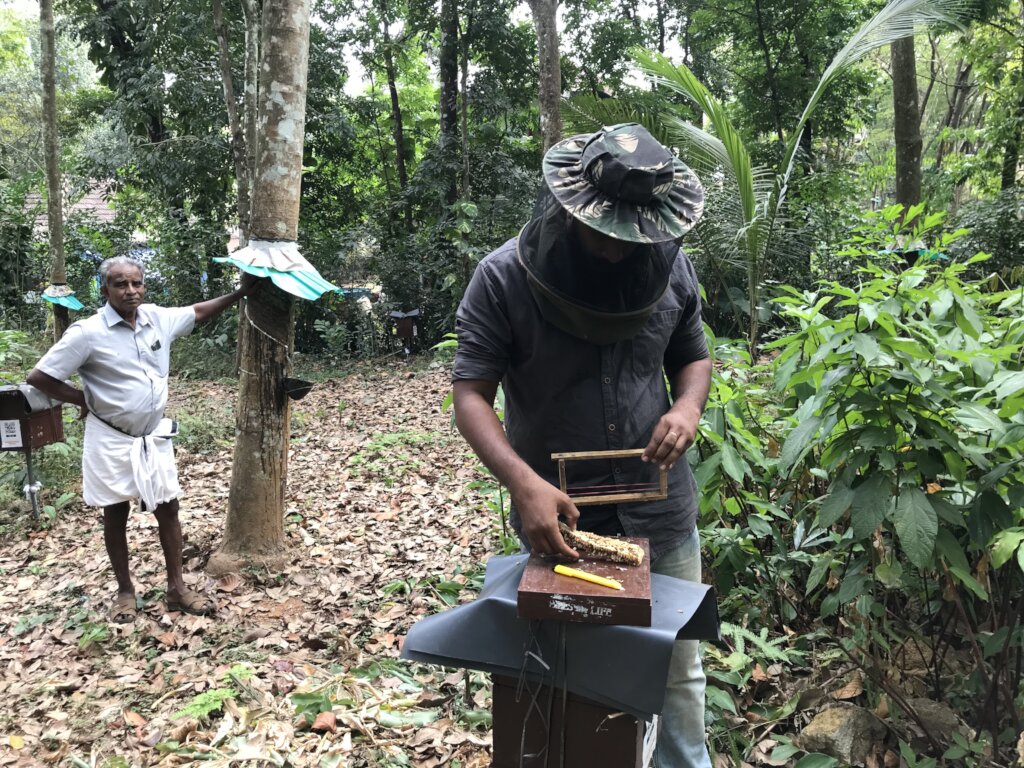By SARATH BABU N B | Project Leader
Honey bees are one such group that has to be protected due to their myriad of activities that sustains nature. If the pollination service by the Bees doesn’t exist many of our farm crops will totally disappear; our biodiversity will be in peril. Commercially and health-wise important products like honey, beeswax, propolis, and royal jelly are produced by these tiny insects. The Bees for Life project aims at enabling ecosystems with improved services and providing livelihood support to marginal farmers. We are providing Honey Bee colonies to destitute women, persons with minor disabilities, and poor people who haven’t own land. TIES provide special training and complete assistance in apiculture practices till they become self-confident.
This year, long sustained monsoon rain has created great havoc in the rhythm of nature, in this part of the world. Climate change is already established. Hence, artificial feeding of bees continued till the mid of December. Division of colonies stopped by that time and by the mid of January started to collect honey. However, relatively less production is reported in all farms and that also may be due to the climate change impacts. The nodular honey of rubber trees is the main source of honey here. Due to the impact of climate change, leaf falling and sprouting of new leaves happened spontaneously. This has limited the production of nodular honey.
Barring all these challenges we have expended beneficiaries into 10 and expanded active bee boxes into 200+. Each beneficiary was provided with ten bee colonies. A full-fledged research team is working with the farmers, recording diverse kinds of data regarding honey bee colony growth, diseases, the impact of climate change, production of honey, and quality of honey. A climate-resilient farming practice protocol is under incubation and during the coming season, it will be employed. A sophisticated quality testing lab for honey and its products and a mechanized processing unit are on the anvil.
By Sarath Babu N B | Project Leader
By Sarath Babu | Project Leader
Project reports on GlobalGiving are posted directly to globalgiving.org by Project Leaders as they are completed, generally every 3-4 months. To protect the integrity of these documents, GlobalGiving does not alter them; therefore you may find some language or formatting issues.
If you donate to this project or have donated to this project, you can receive an email when this project posts a report. You can also subscribe for reports without donating.
Support this important cause by creating a personalized fundraising page.
Start a Fundraiser